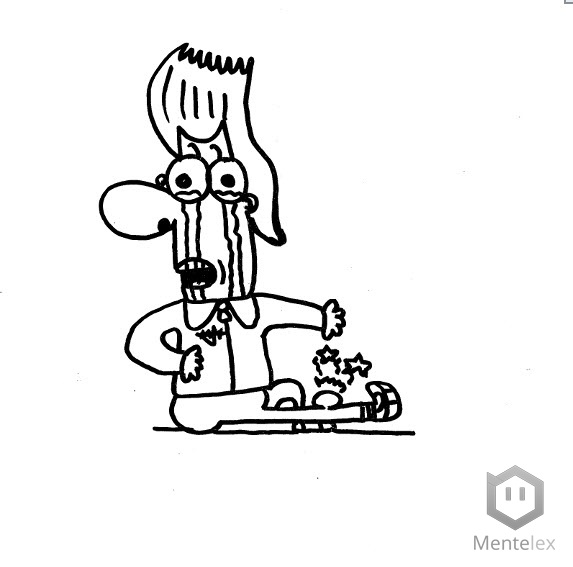
Oppositional Defiant Disorder (ODD)
Oppositional Defiant Disorder (ODD) is a disorder characterized by a pattern of irritable, defiant, oppositional and spiteful behavior (APA, 2013). An oppositional defiant child is always angry, easily upset, often discussing and challenge authority figures, often annoys others and has a hard time recovering from an annoyance. Such behavior should accur on most days of a period of at  least 6 months and is associated with disturbance on his/her social, educational or occupational functioning. It should be noted that for the diagnosis of ODD, behaviors described above should have a higher than expected frequency in a child from his same age; that is, all children/adolescents sometimes discussed and do not obey to parents but that does not mean that they can be diagnosed with ODD.
least 6 months and is associated with disturbance on his/her social, educational or occupational functioning. It should be noted that for the diagnosis of ODD, behaviors described above should have a higher than expected frequency in a child from his same age; that is, all children/adolescents sometimes discussed and do not obey to parents but that does not mean that they can be diagnosed with ODD.
WHAT SCIENCE SAYS
- ODD often occurs along with ADHD, anxiety disorders or learning disorders.
- It is more common in boys than in girls, and onset before adolescence.
- There are two types of punishment: The Positive and Negative punishment .
- There are two types of reinforcement:: The Positive and Negative reinforcement.
- Russell Barkley is one of the world-wide experts on ODD. According to him, there are 4 factors that contribute to the onset of behavioral problems:
1) Coercive Family Processes
2) FactorPredisposing child characteristics
3) Predisposing parent characteristics
4) Predisposing contextual factors.
WHAT CAN I DO
- No repeat the order many times, it is not effective!. Only give a command, once.
- Set deadlines to fulfill what we want: “when the alarm sounds, you have to leave the bathroom “.
- If the order is not fulfilled, the consequence must be clear.
- Punishing means the child receives a negative consequence for him/her as a result of his conduct. The negative consequence can be: Receive a negative stimuli (positive punishment) or withdrawing a positive stimuli (negative punishment).
- Think in advance the consequence to a negative child behavior and NOT IMPROVISE. If we improvise, we run the risk of being too severe and put a disproportionate punishment
- Punishments must be reasonable: “no allowed to use the computer during one month” could be difficult for parents to fulfil. It would be better “not allowed to use the computer this weekend”.
- Reward system in children with ADHD / Negativism is not good. Punishment and reward should be for the same day.
- It is very important to reinforce child positive behavior. When something good is done, we should reward him!
- We can reward by giving him something positive (positive reinforcement) or by withdrawing something negative (negative reinforcement).
- Practice EXTINCTION, that is, IGNORE child behavior. Note that many authority figures do not respond to provocations. For example, when a judge issues a judgment, he is not usually emotionally disturbed. It is very important not to react to child’s behavior.
If you want to receive more information or contact with a psychologist, please fill out the contact form:
[contact-form][contact-field label=’Name’ type=’name’ required=’1’/][contact-field label=’Email’ type=’email’ required=’1’/][contact-field label=’Request’ type=’textarea’ required=’1’/][/contact-form]
References:
American Psychiatric Association (2013). American Psychiatric Association: Diagnostic and Statistical Manual of Mental Disorders, Fifth Edition. Arlington, VA.
Barkley, R, Edwards, G.H. & Robin, A.L. (1999). Defiant Teens: A Clinician’s Manual for Assessment and Family Intervention. New York; Guilford Publications.
If you want to leave a comment to our post, you can do it at the end of the page. We will be very grateful!!!

